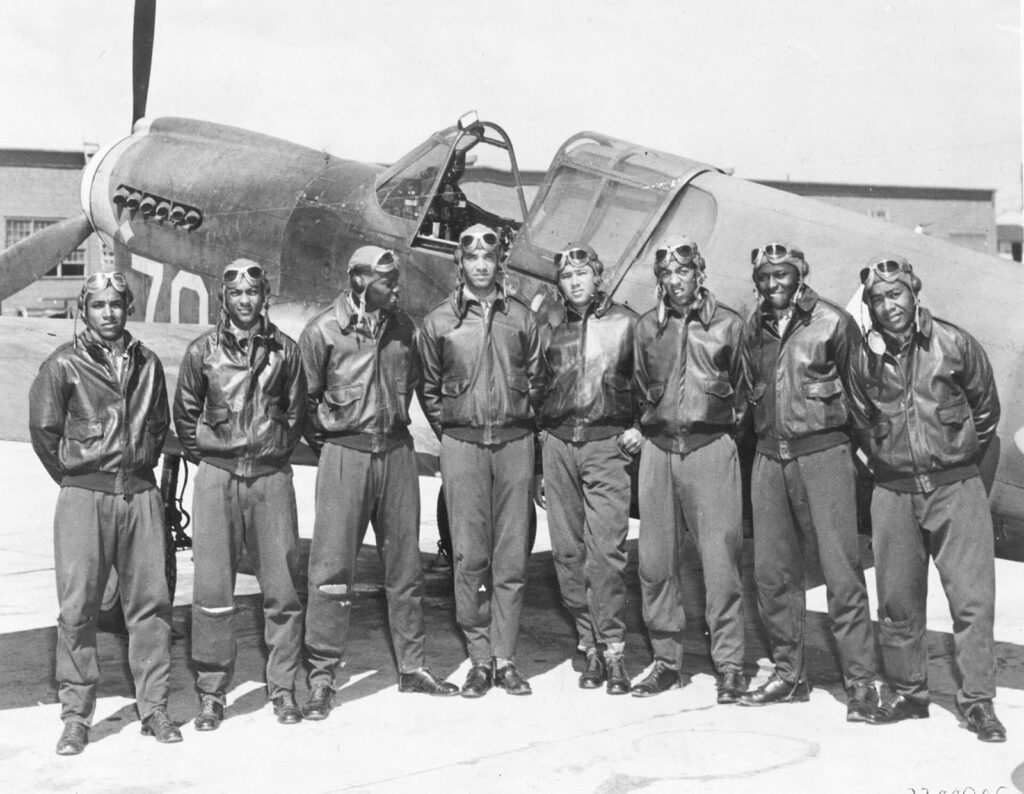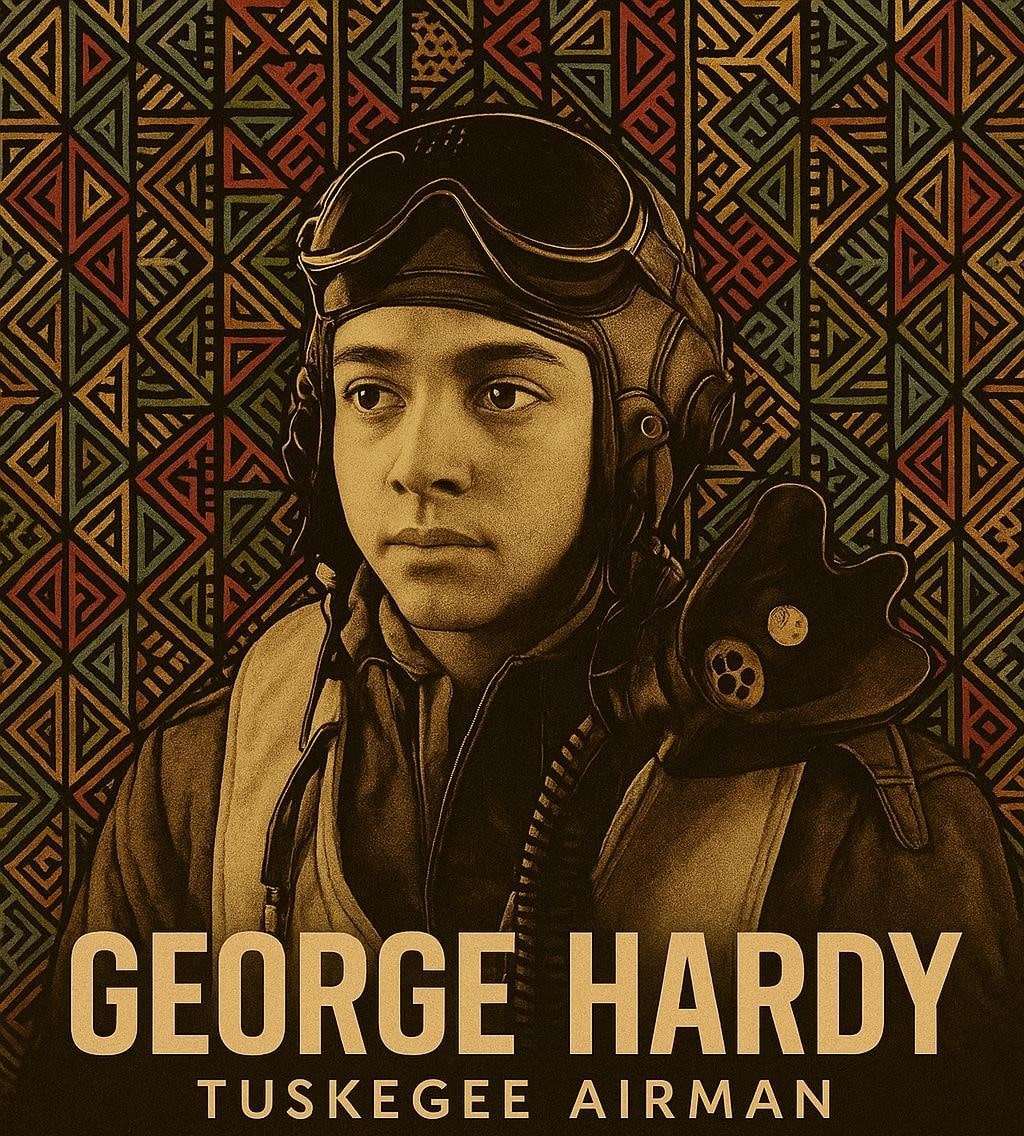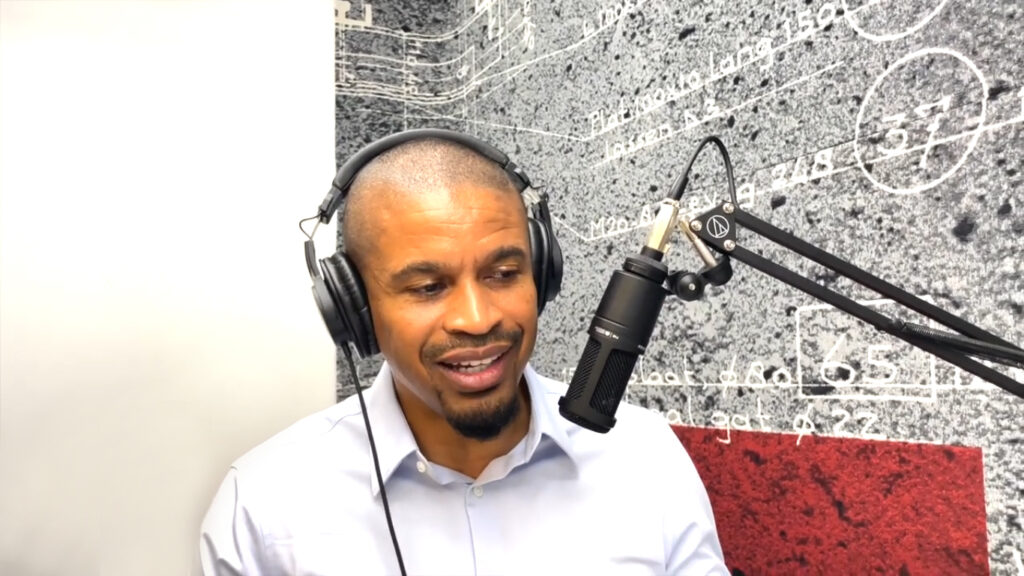The immigrant journey is more than a trip. It’s like real-life Paulo Koehlhoef’s adventure to create your own name, reestablishment of your next gen, and earning honour.
In the context of diverse citizens of the US, a few of the real heroes’ contributions we must remember. They earned the equal right by proving their worth.
Among them, Lt. Col. George Hardy is a remarkable one as one of the last legendary Tuskegee Airmen. His life is a true embodiment of history, representing the entire global African-American community.
According to Ghanaian Sankofa, we must possess the wisdom from the past to guide our future. Studying Idols like George Hardy is the inspiration we need.
He proved one thing: Excellence is the best weapon against prejudice. Hardy was born under segregation.
But his strong ambition led him to achieve the chair of an unmatched pilot. He
served in three major conflicts: World War II, the Korean War, and the Vietnam War.
Hardy’s legendary performance spread his name beyond borders from America to the African diaspora and immigrants everywhere.
His tale is a true example of a phoenix, to be preserved for global excellence.
The Legacy of Tuskegee Airman George Hardy
Hardy grew up in Philadelphia. Started fresh, a spirited man with one clear ambition: to fly. But in the 1940s, the dream of an African American man becoming a military pilot?
It was even considered an impossible fantasy. Even by the highest echelons of the U.S. military. There were scientifically unsound beliefs held that Black men lacked the necessary intelligence. They are not fit for complex aviation.
This pervasive racism created a “double barrier” for men like Hardy. They were called upon to fight fascism abroad, but in their own place…they were relegated to isolation.
Often, they faced discrimination at home. Despite serving the very armed forces as their own.
The U.S. government did not initiate the program to train these Black pilots. It was forced by intense political pressure. The resulting training at Tuskegee Army Air Field in Alabama was an experiment. We can say framed by skeptics who expected it to fail.
The Success of The Tuskegee Airmen Red Tails
Hardy entered this highly politicized program, observing it all. He joined a brotherhood that knew a single failure could block the opportunity for the rest of his kind. Their performance had to be more than perfect compared to white men. This was the only way to shatter the cruel, racist myth.
At the end of the day, Hardy’s commitment ended up as a glory. Every successful flight created a new possibility.
Here is his overall career:
| Era/Period | Years | Role/Focus | Key Achievements/Contributions |
| Tuskegee Training | 1944 | Aviation Cadet, Pilot Training | Earned his wings as part of the famed program. Eliminated racist military discrimination. |
| World War II | 1945 | Fighter Pilot (P-51 Mustang) | Flew 21 combat missions in Europe. He was one of the legendary members of the “Red Tails”. |
| Korean War | 1950–1953 | Bomber Co-Pilot (B-29 Superfortress) | Flew 45 combat sorties. |
| Advanced Education | 1957 & 1964 | Systems Specialist | Earned a B.S. in Electrical Engineering and an M.S. in Systems Engineering, alongside his duty. |
| Vietnam War | 1970–1971 | Gunship Pilot (AC-119K Stinger) | Flew 70 combat missions. He retired with a total of 136 combat missions. |
| Military Retirement | 1971 | Final Rank & Honors | Retired as Lieutenant Colonel. Honored with the Distinguished Flying Cross (DFC) and the Legion of Merit. |
| Civilian Career (GTE/NASA) | 1971–1988 | Project Manager / Technological Pioneer | Applied military logistics and precision planning to the space program at the George C. Marshall Space Flight Center. |
| Collective Recognition | 2007 | Tuskegee Airmen Legacy | Awarded the Congressional Gold Medal for their role in the U.S. Armed Forces. |
Hardy expressively captured this motivation years later when accepting an award on behalf of the Airmen. He reflected on their collective success:
“When I think about the fellas who flew before me and with me at Tuskegee, and the fact that we did prove that we could do anything that anyone else could do, and it paid off today…”
This core philosophy is still non-negotiable for the diaspora and immigrant experience. It is the urge to overcome low expectations. For any immigrant, it is always about your competence as a counterargument to prejudice.
If you are one of them, surely you also feel this fight for capability and dignity. It speaks to overcoming discrimination through continuous effort and unmatched skill.

George Hardy’s NASA Victory
When the warplanes were parked and the military skies settled, where did an unparalleled pilot and tactical expert go next? For Hardy, the answer was the ultimate frontier: space.
His post-military career was also fascinating, which cemented his dedication to technological advancement. Hardy found that his logistics, precision planning, and risk mitigation skills smoothly fit with the NASA demand.
The George C. Marshall Space Flight Center in Huntsville, Alabama, required a highly capable individual for that project. The particular project led development of the powerful rockets. Hardy joined the team there and served as a technological pioneer.
They were desperately looking for someone who could put a man into orbit. George already had a similar aviation capability, which he honed over a decade. When he decided to join the project, it was an irrefutable choice for them.
He was assigned to the Apollo mission first. He managed the massive ground operations and logistical support. From the design phase to launch, he led the necessary technical and logistical backing.
Later, he also joined the Space Shuttle program. He managed the entire complex technical operation- design, tracking, and functioning to make it succeed.
African-American Community and Civilian Legacy
Today, the most impactful role of Lt. Col. George Hardy is to mentor the next generation. As a respected and active Sarasota resident, he has spent his later years traveling and speaking. His continuous effort and commitment to his duty still engrave the memory of the Red Tails.
George Hardy received the Congressional Gold Medal in 2007. He is conscious of how crucial his voice is for the upcoming immigrant generation. His speech always focused on the sacrifices, especially those from immigrant backgrounds or historically marginalized groups.
Like a light bearer, Hardy’s preaching is passing on a genetic code of resilience. His direct accounts have also informed popular culture reflections of the African-American community. His fame influenced the media and movies in shedding light on the legacy of the Tuskegee Airmen.
The Enduring Legacy of Excellence
The achievements of Lt. Col. Hardy and his fellow Airmen were raw proof needed to challenge military segregation. Particularly, their widely reported success in protecting bomber groups. Those were undeniable facts in the debate over integration.
This success directly contributed to President Harry S. Truman’s Executive Order 9981 in 1948. It was a revolutionary step that fueled the following Civil Rights Movement.
Renowned authorities sensibly admitted and recognized their impact. Upon his passing, the significance of his remarkable career was powerfully narrated:
“His legacy is one of courage, resilience, tremendous skill, and dogged perseverance against racism, prejudice, and other evils.”
Lt. Col. Hardy was a living bridge, connecting the trials of the past to the ambitions of the future.
His life remains a guidebook for everyone who seeks to rise above the limitations others impose upon them.







